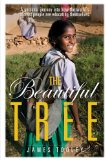Answer: With free-market entrepreneurial private schools.

I’ve just finished reading this most remarkable book: The Beautiful Tree – A personal journey into how the world’s poorest people are educating themselves. Fresh out of college in 1983, James Tooley went to Zimbabwe to teach school. Now, 26 years later, with an astonishing breadth of experience teaching and researching education in Africa, India, and China he presents startling data on successful educational innovation occurring in the poorest communities in India, Kenya, Zimbabwe, Ghana, and China – private schools created by the poor and serving poor students.
Prof. Tooley chronicles the abysmal failures of government education (40% teacher absenteeism, corruption, overcrowding, prejudice against the poor among other appalling indicators) and what the poorest communities are doing to secure an education for their children. It turns out that even in the poorest communities, parents value education and are willing to pay for it. Remarkably enough, they prefer to make arrangements where they can hold schools and teachers accountable. They have no way to do this politically with government schools, so they are turning to private schools. They are started many times by parents themselves or by a homegrown teacher in the community who is asked by the parents to teach their children. These schools are often unlicensed, un-recognized, and unaccredited, but nonetheless are doing a better job at educating the children of the poor than the government schools.
Tooley argues that this is NOT a bad thing – instead it should be nurtured, supported, and encouraged. He’s put his money where his mouth is and now heads a corporation which is seeking to invest in and develop a sort of franchise, recognized brand in affordable, community-focused private schools which serve the poor.
The most powerful part of his analysis is the clear and convincing data which he uses to show the large numbers of poor students already enrolled in private schools and documents their achievement. He catalogs the typical objections raised to private schooling and rebuts each of them convincingly. Rather than spending more and more foreign aid on government schools, he suggests that far better results would be achieved re-directing that aid to assist private schools that actually serve the poor – in the form of loans, direct grants for capital improvements, and targeted tuition support for the poorest of the poor.
Everyone involved in the public policy debates about education should read this book.
– Rob Shearer
I’ll have to add that to my list. Sounds great.
I noticed your booklist sidebar. What do you think of Machen’s book? I just finished that one myself and thought it could have been written yesterday. I am also reading Willingham’s Why Student’s Don’t Like School and Machen makes a similar critique of state-run schools that Willingham is again making today.
I read Desert Queen a few years ago when a brother-in-law was getting ready for his 2nd tour in Iraq.